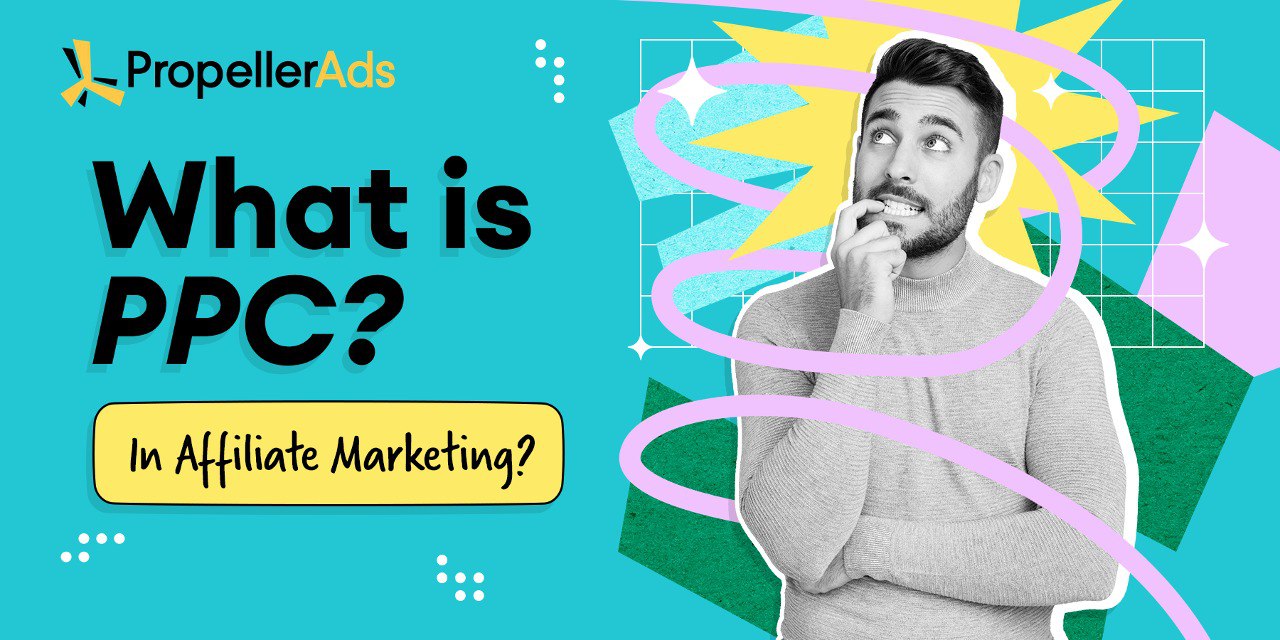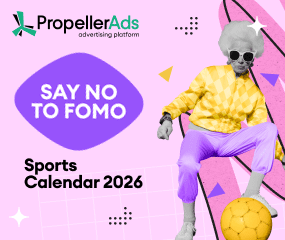What is PPC (Pay-Per-Click) in Affiliate Marketing?

This post is also available in:
PT
Is Pay-per-click (PPC) any efficient for affiliate marketers? Well, it’s certainly worth attention. Now, what makes this PPC so good? Well, for starters, PPC will allow you to get your ads in front of people right when they’re searching for products or services like yours.
So, in a way, PPC helps you get out there – really cool.
But if you’re not that familiar with how PPC works (there are a lot of rules and details), we’re here to help.
What is Pay Per Click?
Basically, PPC is a super popular way to advertise online, and even if you haven’t used it, you’ve definitely come across these ads.
Here’s how it works: with PPC, you only pay when someone actually clicks on your ad and gets redirected to your site. If someone sees it but doesn’t click? No charge at all.
Think of it as paying for visits to your site, giving you direct access to people who are already interested in products or services like the ones you promote.
Search Engine Optimization Vs Pay Per Click
Don’t confuse SEO with PPC, these are totally different, even though they work side by side. Now, Search Engine Optimization, or SEO, is a way to promote your content online (through blogs, websites, landing pages, posts). It’s a good way to start, but it takes a lot of time to get it going.
With Pay Per Click, you get instant results and have full control over targeting and messaging, but it does mean ongoing costs. SEO, on the other hand, is more of a long-term game. It takes time to see results since it depends on algorithms and organic rankings. The upside? SEO can bring in traffic without any direct ad costs.
PPC Platforms You Can Use
PPC ads can show up across a bunch of platforms. Now, remember that each comes with its own audience and benefits:
- Search engines: Google Ads and Bing Ads are the main players here, letting your ads pop up next to search results when users look for specific keywords.
- Social media: Facebook, Instagram, and LinkedIn Ads give you strong targeting options, so you can reach the exact demographics and interests you’re after right in their social feeds.
- Display networks: With the Google Display Network and similar networks, you can display visual ads across a huge range of websites.
Why Every Affiliate Marketer Should Use PPC
We can’t make you use PPC, but we can show you why it matters.
- Targeted reach: Get your ads in front of the right people at the perfect time with precise targeting.
- Measurable results: Track every detail of your campaign’s performance with metrics and analytics.
- Quick results: Start seeing traffic and conversions fast, right from day one.
- Budget control: Set your own budget and adjust spending whenever you need to.
- Brand visibility: Boost brand awareness with prime ad placements – even if users don’t click right away.
How PPC Works in Affiliate Marketing: A Step-by-Step Guide
Now that you’ve got the Pay Per Click industry basics down, let’s look at how it works for affiliate marketing.
- Find a PPC Affiliate Program: Look for affiliate programs that allow PPC ads. Many have specific rules, so choose one that fits your strategy.
- Pick Your PPC Platform: Choose the PPC platform that matches your target audience. Top choices are Google AdWords PPC, Bing Ads, or social platforms like Facebook and Instagram Ads.
- Set Up Your Ad Campaign: Create a campaign focused on your affiliate offer. Define your goals, set your budget, and choose targeting options.
- Make Click-Worthy Ads: Design ads that stand out and get people interested enough to click.
- Track Your Results: Use the tracking Pay Per Click tools on your platform and affiliate network. Keep an eye on clicks, conversions, and cost-per-conversion to get the best ROI possible.
Key Elements of a Winning PPC Campaign
Let’s put it this way – building a successful PPC campaign is like tuning up a race car – every piece matters. In that light, don’t ever think of skipping a step or simply doing some important part without care.
Keyword Research
Find the keywords that’ll get you noticed. Look for ones with high search volume and low competition using research tools to find the best options for your ads. Some sweet spots are keywords with 5-10 Keyword Difficulty scores, and over 5k search volume.
Ad Copy
Your ad copy is what grabs attention and gets people to your landing page. Make it catchy, clear, and persuasive. Show off your offer’s benefits, use strong CTAs, and create FOMO – that thing works almost every time.
Landing Page Optimization
Your landing page is where clicks turn into customers. Make sure it matches your ad’s message. So, keep info clear and simple, and include a strong CTA so people know what to do next.
Bidding and Budget Management
Balance cost with visibility. Use smart bidding strategies, allocate your budget carefully, and watch your spending to get the most out of every dollar.
Tracking and Analysis
Keep an eye on your performance metrics like clicks, impressions, conversions, and cost-per-conversion. Tracking lets you see what’s working and make adjustments for better results.
PPC Affiliate Programs
In case you like what you see here, and you’re all set on the idea to start your PPC campaign, great. You’ve got tons of Pay Per Click affiliate marketing programs to choose from. Now, remember that each program offers solid opportunities to earn commissions.
Here are a few good ones to start with:
- Amazon Associates: One of the biggest and most popular options out there. With Amazon Associates, you can promote a huge range of products, earn competitive commissions, and rely on solid tracking tools.
- ClickBank: Great for digital products, ClickBank has a variety of e-books, courses, and software you can promote. Perfect if you’re looking to sell info products!
- RevenueHits: This program works on a CPA (cost per action) model, which means you only get paid when users complete a specific action after clicking – like signing up, downloading, or buying something.
Conclusion
With everything we said above, getting started with PPC sounds just right. You can get your revenue high and cut down on troubles along the way, but it will cost you as Pay Per Click cost can be a bit expensive.
But hey, you know what they say about good things – they come with a price. So, make sure to go every step of the way with care and precision, and you’ll be alright.
Come join us on Telegram for more insights and communications with fellow-affiliates!




